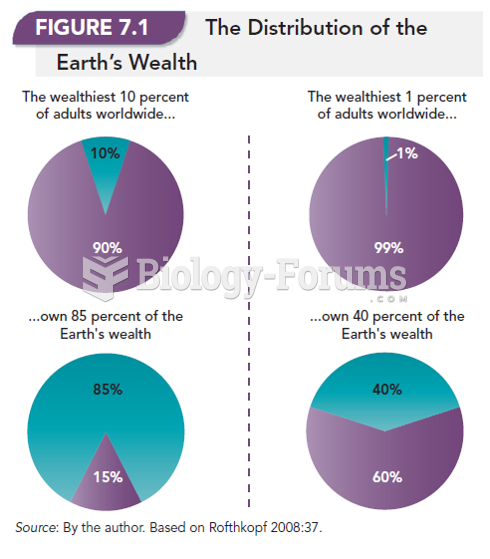|
|
|
There are more bacteria in your mouth than there are people in the world.
Carbamazepine can interfere with the results of home pregnancy tests. If you are taking carbamazepine, do not try to test for pregnancy at home.
As the western states of America were settled, pioneers often had to drink rancid water from ponds and other sources. This often resulted in chronic diarrhea, causing many cases of dehydration and death that could have been avoided if clean water had been available.
Dogs have been used in studies to detect various cancers in human subjects. They have been trained to sniff breath samples from humans that were collected by having them breathe into special tubes. These people included 55 lung cancer patients, 31 breast cancer patients, and 83 cancer-free patients. The dogs detected 54 of the 55 lung cancer patients as having cancer, detected 28 of the 31 breast cancer patients, and gave only three false-positive results (detecting cancer in people who didn't have it).
The FDA recognizes 118 routes of administration.
 Hong Kong is a strange situation. A British colony since 1842, it was handed back to China in 1997 a
Hong Kong is a strange situation. A British colony since 1842, it was handed back to China in 1997 a
 A mere one-half percent of Americans owns over a quarter of the entire nation’s wealth. Very few ...
A mere one-half percent of Americans owns over a quarter of the entire nation’s wealth. Very few ...




